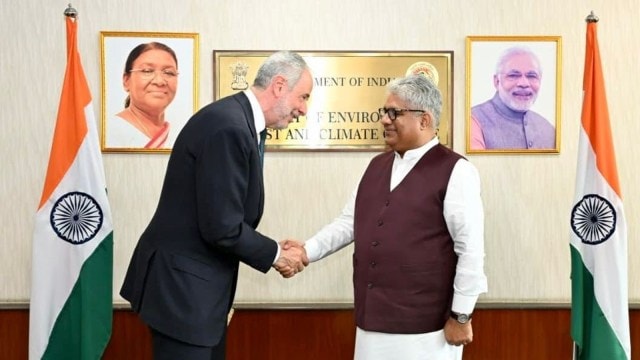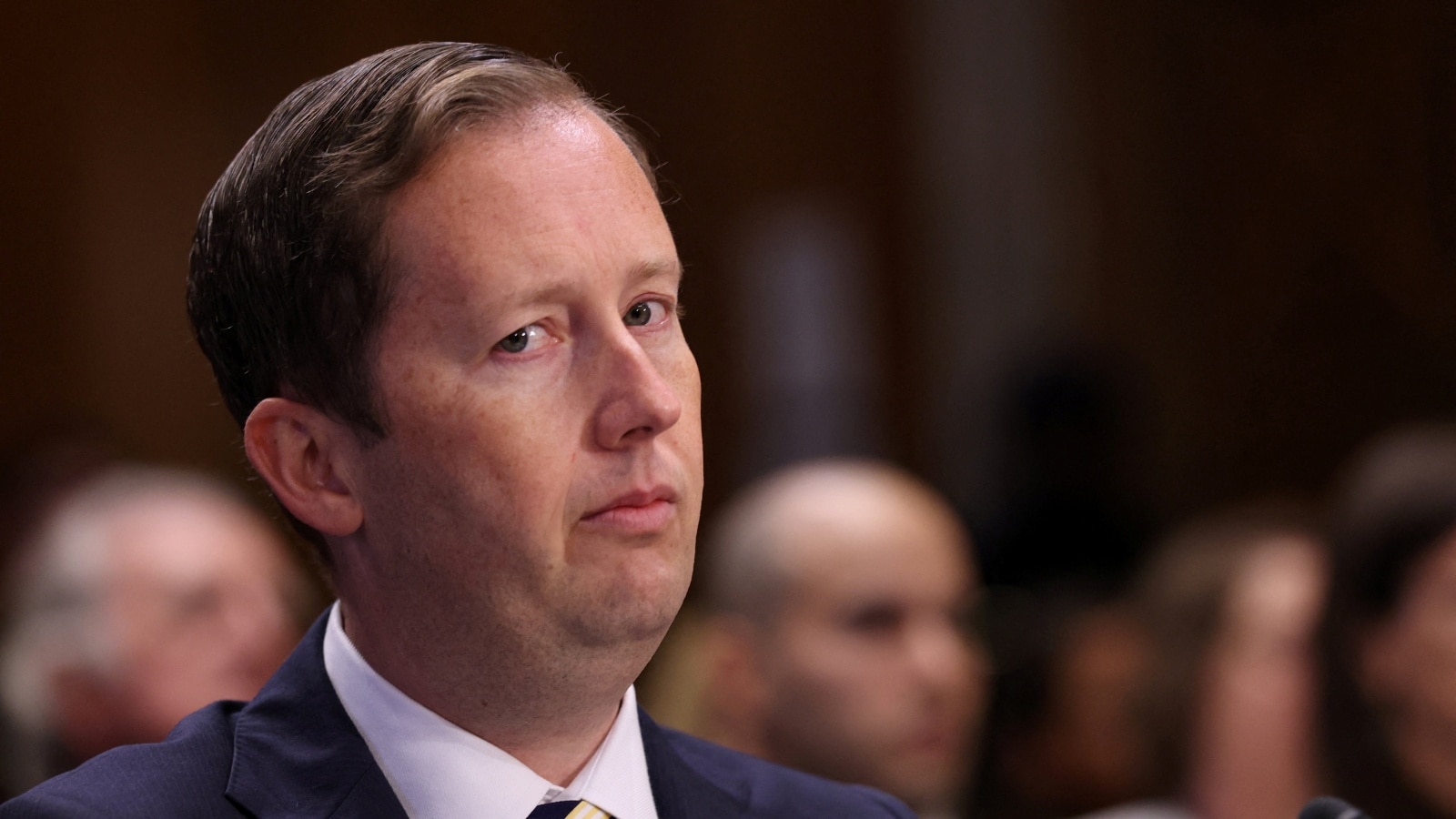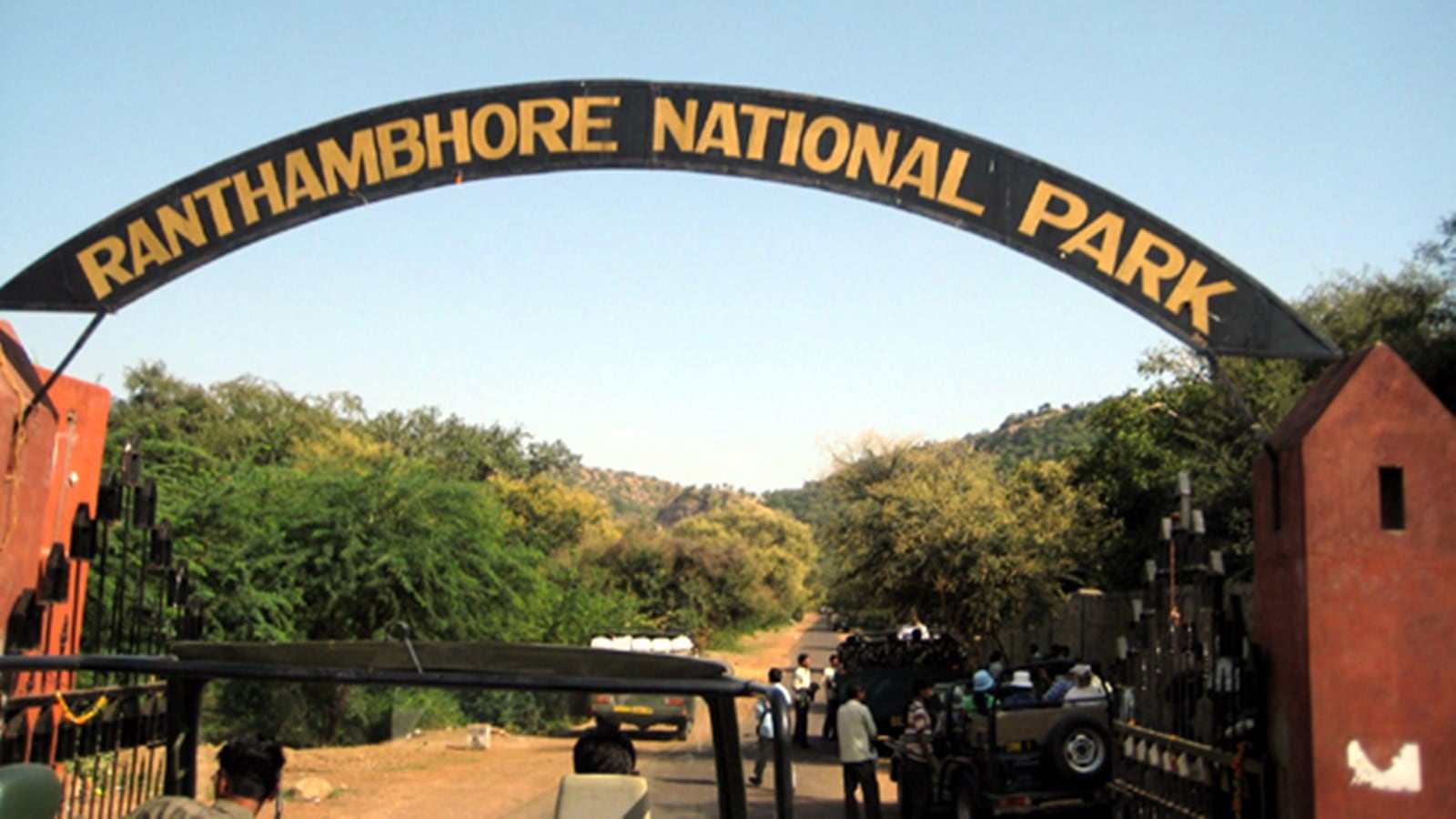ARTICLE AD BOX
 Environment Minister Bhupender Yadav and COP30 President Andre Correa do Lago in New Delhi on Monday. (Photo source: X/@byadavbjp)
Environment Minister Bhupender Yadav and COP30 President Andre Correa do Lago in New Delhi on Monday. (Photo source: X/@byadavbjp)
MILITARY CONFLICTS, trade and tariff wars, and geopolitical developments have shifted the focus away from climate change, but have not made the problem go away, André Corrêa do Lago, head of this year’s climate conference in Brazil, said Monday, while urging nations and businesses to step up their efforts to tackle climate change.
“I understand there is a lot happening in the world right now. But the problem of climate change is not going to recede just because we stop looking at it. As scientists have been telling us, it continues to get worse every day. We need to continue to work on climate change while everything else is going on,” do Lago, who is in New Delhi to meet Indian officials, said. Among others, he held a meeting with Environment Minister Bhupender Yadav.
Brazil is hosting COP30, this year’s edition of the annual climate conference, in Belem from November 10 to 21. Unlike some previous years, there is no specific heavy-duty task that needs to be completed at this conference, though the agenda is still to be finalised. The withdrawal of the United States from the Paris Agreement, and the deep disappointment of the developing countries at a finance deal reached at the previous edition in Baku last year, have cast a shadow over the effectiveness of the UN-mandated climate negotiation process.
As the host of the conference, one of Brazil’s main objectives is to try and restore trust in this multilateral negotiating forum.
‘We are trying to speak to as many stakeholders as possible — governments, businesses, cities, scientists, policymakers, civil society groups, even general public — and are trying to ensure that the final outcome is able to reflect their concerns. We believe that COP30 has to provide a result that meets the expectations of all these stakeholders,” do Lago, who served as Brazil’s ambassador to India very recently, said.
Brazil has been hoping that it would be able to get the countries to do more on the implementation of the 2015 Paris Agreement, whose main goal is to ensure that global rise in temperatures is not allowed to exceed 1.5 degrees, or maximum 2 degrees, from pre-industrial times. The world is moving very slowly on the implementation, and the 2030 global emission reduction target that is considered necessary for meeting the 1.5 degree goal, is now almost surely going to be missed.
Brazil has prepared an extensive ‘action agenda’ for the conference, which seeks to mobilise additional voluntary climate commitments from groups of governments and businesses, outside of the negotiation framework. Such ‘action agenda’ have been present at previous conferences as well which have resulted in several headline-making commitments from assorted groups of countries and businesses. However, these have not translated into significant actions on the ground.
Story continues below this ad
“One of our primary goals is to expedite the implementation of the Paris Agreement. We are urging the countries to scale up their respective climate action plans, and are also very hopeful of the action agenda delivering meaningful outcomes and actions. I am aware that the action agendas at previous meetings have not materialised into anything big or significant, but some of these are making good progress. We are trying to consolidate these, begin monitoring their progress, and bring in transparency, so that everyone knows what is happening with these,” he said.
“I believe that COP30 has some very important things to accomplish. Taking our eyes off the climate challenge is going to be disastrous. No one wants that. So we are trying to get the attention of the countries to this problem as earnestly as we can, so that we can collectively refocus our energies in dealing with this,” he said.



.png)
.png)
.png)























 English (US) ·
English (US) ·